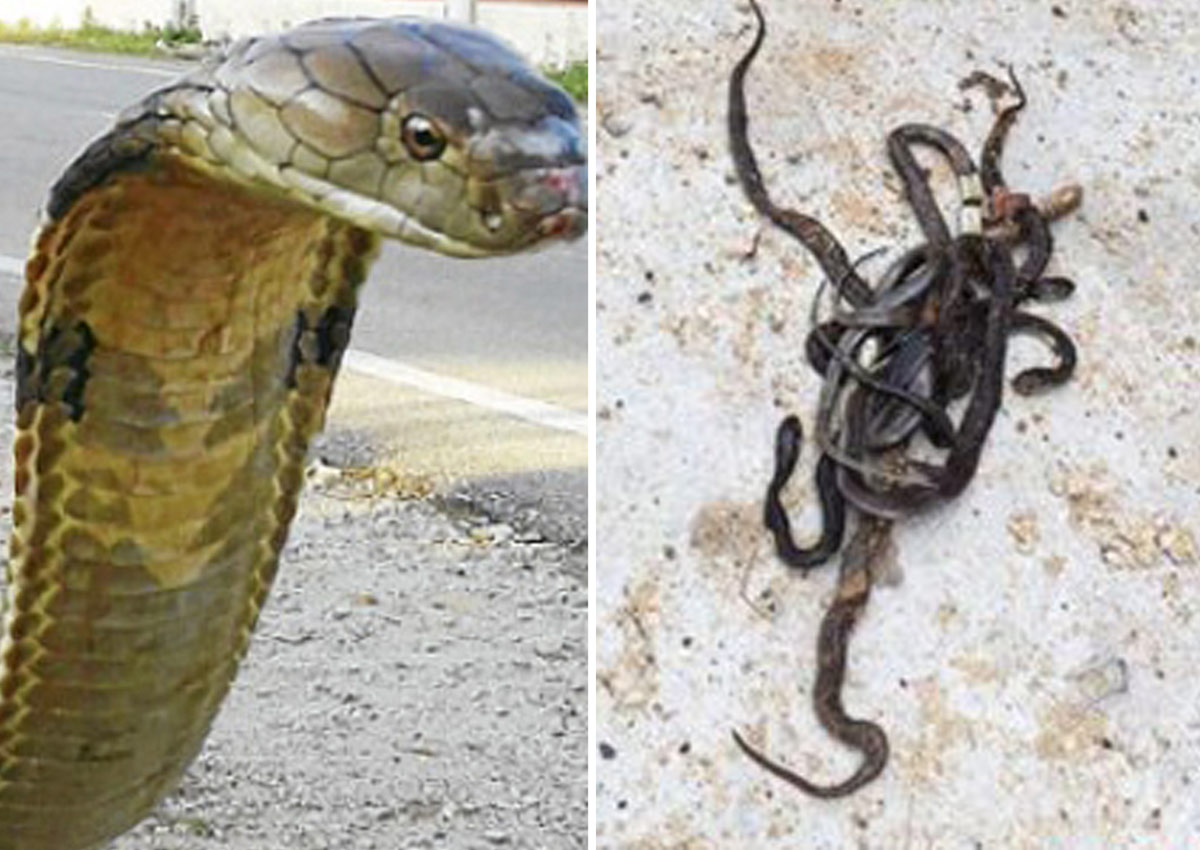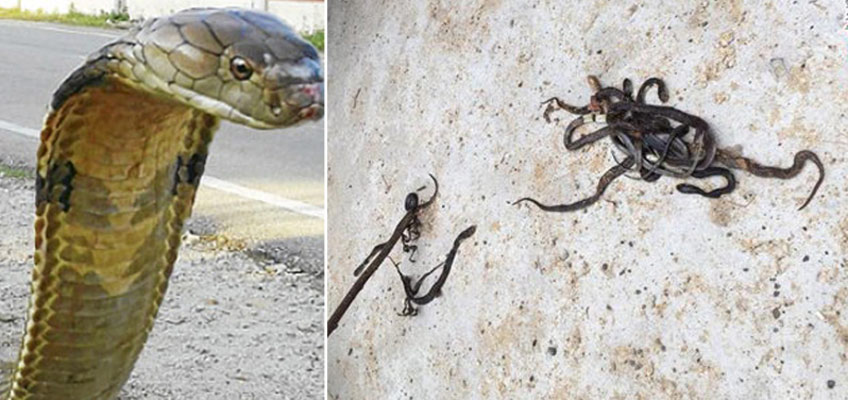More than 200 young cobras recently escaped from a farm in Nanjing city, capital of East China’s Jiangsu province, and more than 50 remained missing by end of Monday (Oct 10).
The local authorities said that the escaped cobras, or monocled cobras specifically, were illegally bred by the Chunyi Animal Breeding Cooperative based in the city’s Luhe district.
The snakes disappeared between August 26 and 29, but it was only on Monday night that the local people found out through social media.
“The farm has been searching for the runaway cobras and has captured or killed more than 150 of them,” said the Luhe government Monday night.
The government discovered the incident after a cobra was found and killed in a villager’s home on Saturday.
The farm bought monocled cobra eggs from Shaoguan city of South China’s Guangdong province in early August and incubated about 1,820 cobras, out of which some 1,500 survived.
The farm had neither reported to the government nor got any permission for the breeding business before and after the incubation, according to local authorities, who launched a “carpet search” for the runaway snakes on Tuesday morning.
Officials from the Luhe government’s publicity department said the young cobras, about 20 centimeters long, are not as dangerous as the adult ones. They believe the snakes will probably not survive the upcoming cold winter.
Ecns news agency reported that the farm was shut down and those in charge would “be held responsible for the incident”.
Read also: Do’s and Don’ts when bitten by an animal or insect
Snake-out
Snakes escaping from farms is not uncommon in China, according to past media reports.
In August, a total of 180 baby cobras escaped from a breeding farm in Emei Shan city in Sichuan province. 30 were killed and seven were found dead. Search continued for the rest, reported Xinhua news agency.
The authorities distributed alcohol and realgar, an arsenic sulphide mineral, to residents so they could use them to repel the snakes.
The baby cobras, which measured 16 to 27cm long, were not highly venomous. Those that were caught were sent to a government facility which had proper security measures.
chenj@sph.com.sg













